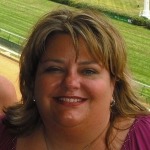Want to suck the energy out of a meeting? Allow the Hog to dominate. Stay silent for the Bog. Invite the Frog.
The Hog likes to hear himself speak. He goes on and on, jumps into every conversation, and is quite pleased with his extensive knowledge of all things, from plumbing to liturgy, from budgeting to tree trimming. The Hog squeezes others out of the conversation and squelches disparate opinions.
The Bog can’t see the forest for the trees. This person gets so drawn into the details, wanting to examine every facet of an issue, that the group can’t move to the next item on an agenda. The Bog beats the proverbial dead horse until even the vulture moves on.
The Frog leaps right over items. Instead of listening carefully to colleagues or vestry members, the Frog skips to the issue he’s passionate about, leaping in a single bound from planning the Christian education program to figuring out handicapped parking.
Giving these energy-sucking habits clever names is one way to draw attention to the problem without finger-pointing. It’s also worth asking ourselves throughout a meeting: “Am I being a Hog, Bog, or Frog?” We’re all guilty occasionally, and we should give some space and grace, particularly in areas we’re passionate about.
But when these behaviors become patterns—when you can anticipate boggish conversation before the person even opens his mouth or when you eye-roll when the Hog jumps in—then you know there’s a problem. Your meeting is a balloon in slow deflate. People will see the commitment as a drag, as energy-draining, instead of the opportunity to build up the body.
I propose that at the next vestry meeting, the priest or senior warden present these concepts and ask people to commit to avoiding the behaviors. The other part, of course, is naming—in gentle but certain ways—these behaviors when they persist.
R ichelle Thompson is a regular blogger to ECF Vital Practices, writing from the Diocese of Southern Ohio, where she served as director of communications for many years. In 2013, Richelle began work as managing editor at Forward Movement. A clergy wife and mother of two, Richelle also serves on the board of Episcopal Communicators.
ichelle Thompson is a regular blogger to ECF Vital Practices, writing from the Diocese of Southern Ohio, where she served as director of communications for many years. In 2013, Richelle began work as managing editor at Forward Movement. A clergy wife and mother of two, Richelle also serves on the board of Episcopal Communicators.
